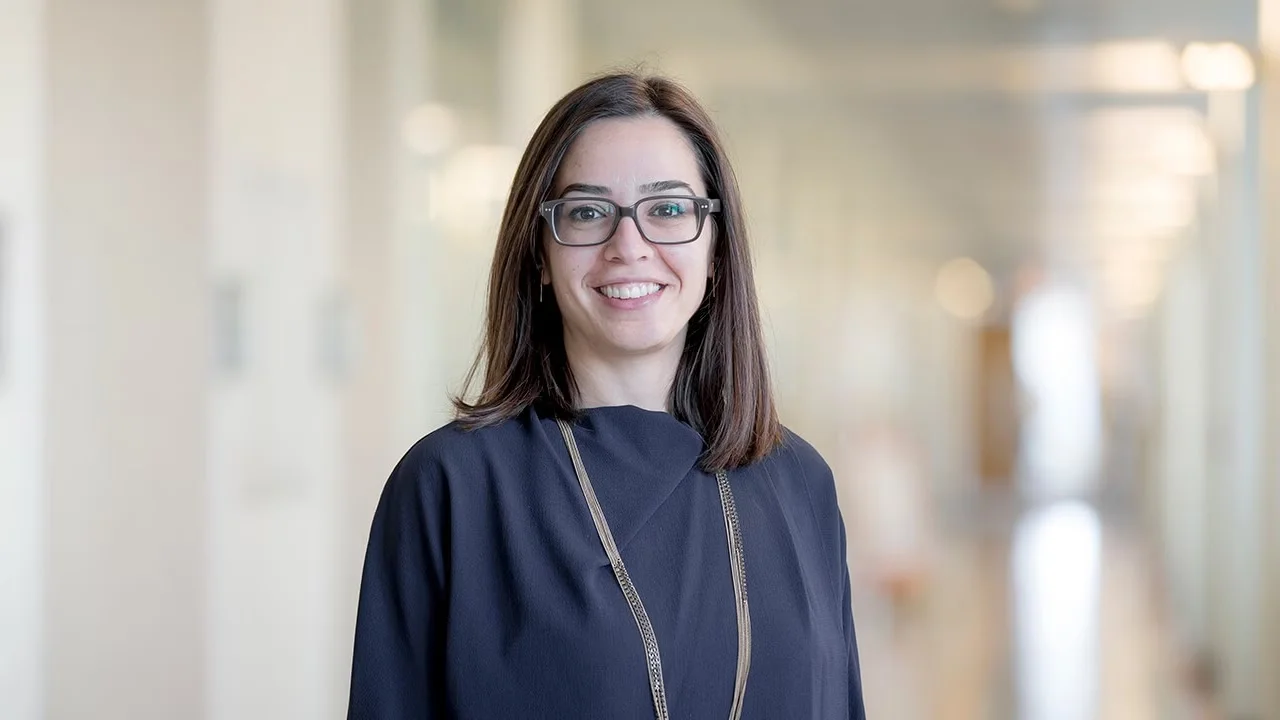
Sahika Inal
Professor Sahika Inal's research bridges the fields of organic electronics and biology, focusing on the development of bioelectronic materials for real-time health monitoring and intervention.
Biography
Professor Sahika Inal earned her B.Sc. in textile engineering from Istanbul Technical University in Turkey, followed by an M.Sc. in polymer science through a joint program offered by Humboldt University, Free University, the Technical University of Berlin, and the University of Potsdam in Germany. In 2013, she completed her Ph.D. in experimental physics at the University of Potsdam, where she focused on electronic polymer-based optical sensors for pathogen detection. After earning her doctorate, she conducted postdoctoral research at the Center of Microelectronics of Provence at the École Nationale Supérieure des Mines de Saint-Étienne in France, developing microelectronic devices for bioelectronic applications.
Since 2016, Professor Inal has led the Organic Bioelectronics Lab at KAUST. Her research explores mixed ionic and electronic charge transport in organic materials and the development of electronic devices that interface with biological systems for biosignal recording and stimulation. She currently serves as the program chair of the Bioengineering program at KAUST. She has received numerous awards, delivered more than 70 keynote and invited talks at major international conferences across 15 countries, published more than 135 articles, and holds 10 patent applications. Her innovative contributions advance the field of bioelectronics and open new possibilities for understanding and interacting with biological systems.
Research Interests
Professor Inal’s expertise lies in polymer science and bioelectronic devices. She specializes in the photophysics of conjugated polymers, characterization of polymer thin films, behavior of polymer films in aqueous environments, and the design of biosensors and actuators that incorporate conjugated polymers. Her current research focuses on ion and electron conduction in organic electronic materials and the design of bioelectronic devices capable of recording and stimulating biological signals.
By combining in-situ techniques to monitor ion and electron motion in films, fibers, and porous scaffolds of organic materials, her team aims to identify the best-performing materials, formulations, processing conditions, and form factors for use in biological electrolytes.
These optimized materials are then applied to build devices such as transistors, fuel cells, electrodes, electrochemical actuators, and drug-delivery systems that can sense or stimulate biological signals.
Awards and Distinctions
- ACS Kavli Lectureship Award, 2025
- Beilby Medal and Prize , 2022
- Rising Star Award, ACS Women Chemists Committee, 2022
- Fellow, Royal Society of Chemistry, 2022
- Journal of Materials Chemistry Lectureship, Royal Society of Chemistry , 2022
Education
- Doctor of Philosophy (Ph.D.)
- Experimental Physics, University of Potsdam (UP), Germany, 2013
- Master of Science (M.S.)
- Polymer Science, TU, HU, FU Berlin, UP (Joint Program), Germany, 2009
- Bachelor of Science (B.S.)
- Textile Engineering, Istanbul Technical University, Turkey, 2007
Related Media
Research Achievements
- Editorial Board Member of iScience, Cell Press
- Editorial Board Member of Journal of the Royal Society Interface, Royal Society Publishing
Questions and Answers
Why your area of research?
My research is in the field of organic bioelectronics. Bioelectronics deals with the coupling between the worlds of electronics and biology, in order to develop devices for detection and treatment of diseases. I cannot think about a better cause to focus on. I want to make devices that have the potential to solve the health problems of the people.
Why KAUST?
As a polymer scientist and engineer, I work in close coloration with chemists who design innovative materials and with biologists who actually come up with problems that excite all of us. I like dealing with problems that are vital for human health and that concerns a wide audience. I have been up to date with the relevant research at KAUST and have been aware of the world-class KAUST scientists. I was convinced that the facilities, collaborators and the research environment at KAUST provide most of the necessary ingredients for a young scientist like myself to grow. KAUST has, therefore, been a natural next step in my career.